 ARTIFICIAL INTELLIGENCE
ARTIFICIAL INTELLIGENCE"Even with AI, high-quality editing remains a painful process for those involved in the writing process"
From text generation in academic settings to the ethical challenges of using artificial intelligence in the publishing industry: Professor Christoph Bläsi takes a comprehensive look at AI in book studies – and far beyond. Since 2019, he has been one of three spokespersons for the KI@JGU network.
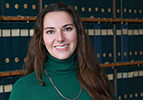 ANCIENT STUDIES
ANCIENT STUDIESLayers of Rome
Archaeologist Catherine Teitz explores how Roman architecture and everyday life along Hadrian’s Wall evolved over the centuries – and how old excavation records can still yield new insights. She values the strong Roman heritage research network in the Rhine-Main region and lends support to early-career researchers in her field.
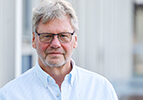 GEOSCIENCES
GEOSCIENCESA life passion for core samples and the future of the ELSA project
The collection of samples in the ELSA geoarchive provides a unique record of the climate of Central Europe over the past 130,000 years. The archive provides insights relevant to many research fields and disciplines. Over the last 25 years, the Eifel Laminated Sediment Archive has supplied data for three books, some 50 student theses and doctoral dissertations, and at least 60 research papers. And there is still an extensive range of fascinating open questions. Thus, it is essential that drilling continues, even though Professor Frank Sirocko, who spent many years building and expanding the ELSA geoarchive, will soon be taking his well-earned retirement.
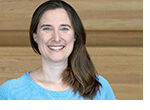 LIFE SCIENCES
LIFE SCIENCESThe big impact of tiny cell structures
Tiny projections on the surface of human cells can determine whether we stay healthy or develop a genetic disorder. Professor Helen May-Simera, a cell biologist at Johannes Gutenberg University Mainz (JGU), is an expert on these hair-like structures – called cilia. Her research explores the outsized impact these tiny components can have. Her work bridges fundamental molecular science with clinical relevance, direct patient engagement, and international teaching.
 RHINE-MAIN UNIVERSITIES
RHINE-MAIN UNIVERSITIESThe fascination of Africa
The traditional discipline of African Studies meets interdisciplinary diversity in the new Bachelor's degree program "African Languages, Media and Communication" offered by the universities in Mainz and Frankfurt. This collaborative program of the Rhine-Main Universities Alliance is a success story with an impact extending far beyond the region.
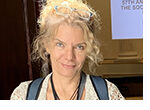 JGU INTERNATIONAL
JGU INTERNATIONALResearch in peace
What Professor Olena Pchelintseva values most about Mainz is the quiet, peaceful sky. "After living with constant air raid sirens, you come to appreciate that kind of silence." The Ukrainian-Russian linguist is spending two years at Johannes Gutenberg University Mainz (JGU) through a fellowship from the Philipp Schwartz Initiative – an opportunity made possible and enriched by "wonderful colleagues."
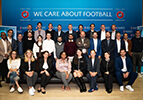 SPORTS SCIENCE
SPORTS SCIENCETop qualification for sports leaders and decision-makers
MESGO is truly international: the Executive Master in Global Sport Governance program is held in venues throughout Europe, in the USA, and in Singapore. As an academic founding member of MESGO, Johannes Gutenberg University Mainz organizes two of the nine worldwide sessions. One of these, the session on Ethics and Integrity, takes place in Mainz and Frankfurt am Main.
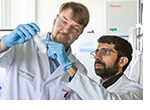 SUSTAINABLE CHEMISTRY
SUSTAINABLE CHEMISTRYHow polymers and natural temperature variations serve to produce clean drinking water
Is there a way to obtain fresh water from seawater without employing conventional desalination techniques? A team led by Professor Sebastian Seiffert of the Department of Chemistry at JGU has developed a very promising approach to dealing with this important question. The HydroDeSal concept uses a hydrogel that reacts to changes in temperature. Once it gets cooler in the evening, the hydrogel draws water from the sea, already rejecting the salt, and then releases clean, salt-free drinking water during the day when temperatures rise. The application of this strategy is now to be made ready for the market.
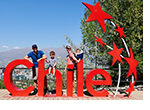 COMPUTER SCIENCE
COMPUTER SCIENCEAlgorithms, avocados, and adventures
The step abroad was a deliberate adventure for Professor Sebastian Erdweg. When planning his research sabbatical, the JGU computer scientist envisioned not just an academic collaboration, but also family life in an unfamiliar country. As a visiting professor, he eventually went to the Universidad de Chile – bringing home not only formative experiences but also a major third-party funded project.
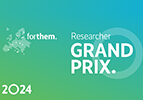 JGU INTERNATIONAL
JGU INTERNATIONALA very special Researcher Grand Prix
Annika Djolai and Elena Suárez Cronauer will be representing the Mainz research hub at the FORTHEM Researcher Grand Prix event in Agder in Norway. This international science slam will be premiering on 6 November 2024. The two young academics will be competing against early-stage researchers from five other universities of the FORTHEM Alliance, which comprises a total of nine higher education institutions all over Europe. Annika and Elena qualified for participation in Agder at the science slam organized by the Task Force Young Science in Mainz in September 2024.
